One of my all time favourite moments in cinema is from Raiders of the Lost Ark. It’s a scene from late in the second act. Indy ducks into a nearby tent to avoid being discovered by the Nazis and comes across a bound and gagged Marion Ravenwood. Up until then, Indy was of the belief that Marion was killed in an explosion. Thrilled, he begins to untie her, but as they talk, Indy realizes that, as bad as her situation may be, she’s actually better off left there. So he ties her back up, gags her again, and runs off. It’s a fantastic piece of screenwriting. One that subverts your expectations, plays against the idea of coincidence as a plot device, and does it all with great charm and fanciful wit. Watching Moon Knight reminded me of that moment. The way this series is constructed, the way this story plays out, feels like a terrific turnabout of everything we’ve seen so far in the MCU.
Who would have thought that Moon Knight, a relatively obscure comic book character, who suffers from dissociative identity disorder, and whose origins are rooted in Egyptian mythology, would be the most refreshing thing in the Marvel Cinematic Universe since that first Guardians of the Galaxy movie. In bringing this character to the screen, Kevin Feige and company take a page from out of James Gunn’s playbook, and ease you into it by way of the familiar. It is The Mummy. It is Indiana Jones. It is familiar without being derivative. It tells a unique story, but uses the hallmarks of our cinematic canon in order to help us along.
Steven, Meet Marc… Marc, Meet Steven…
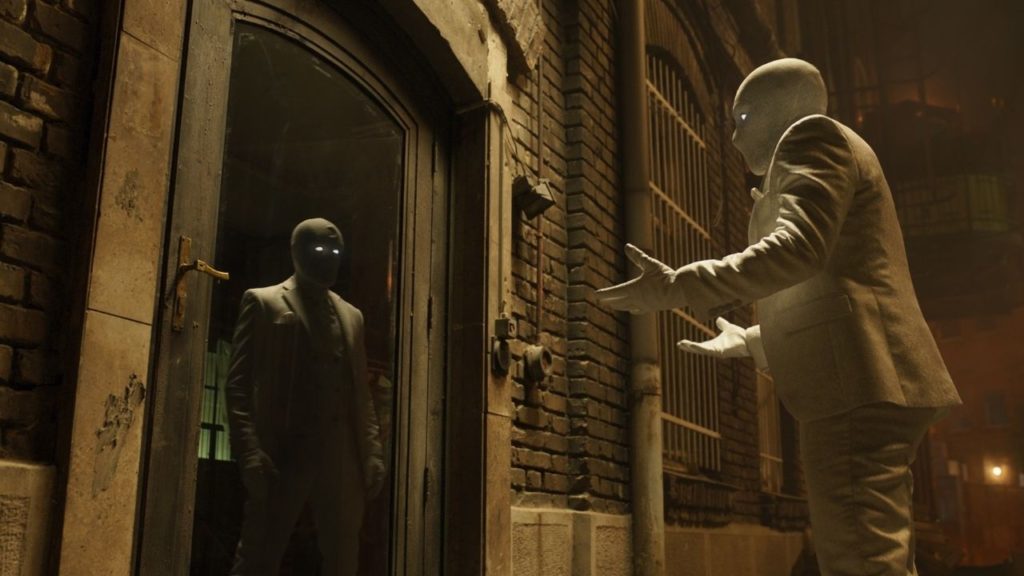
One of the most fascinating aspects of this series is how it handles the idea of a superhero with dissociative identity disorder. On the face of it, we have the brilliant Oscar Isaac, who transforms, not just the way he speaks (of his two identities, Steven Grant is English, Marc Spector is American), but his entire physicality. It is an incredible performance, one that is so completely immersive on his part that it sucks you right in.
But Moon Knight goes even deeper.
There have been a lot of movies in which DID plays a prominent part, but Moon Knight probably owes more to Florian Zeller’s The Father than it does to Fight Club, or Secret Window, or Split. Here, we aren’t on the outside looking in, but rather experiencing the chaos and confusion of the world right along with Steven. Everything in this production, from the mirrored conversations he has with himself, to the way the action sequences are introduced and choreographed, reflect this struggle. We are inside his mind. We don’t know more than he does at any point and that creates a fantastic tension throughout.
Everything Isn’t Connected
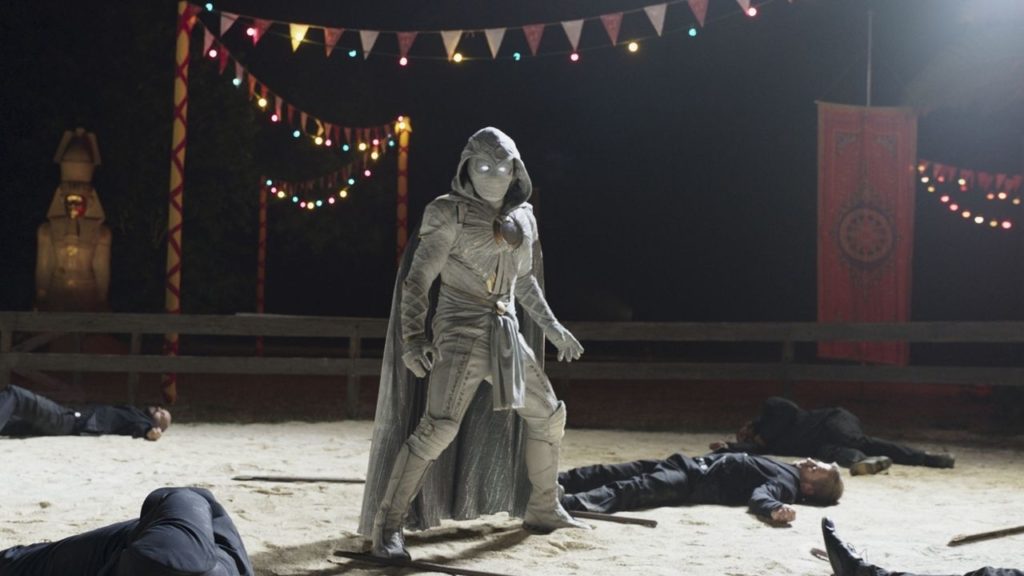
Moon Knight is also unique in that it doesn’t directly connect to anything that’s currently going on in Phase 4 of the MCU. Hawkeye, Captain America, and the Winter Soldier are busy dealing with the aftermath of “The Blip,” while Wanda, Loki, Doctor Strange, and Spider-Man are caught up in some multiversal madness. Moon Knight, on the other hand, is the most standalone story that we’ve yet seen in the franchise. It is focussed. It isn’t concerned with setting up future movies or spinoffs. Which makes it feel fresh, and different, and completely accessible. In fact, if you are one of the seven people in the world who has had absolutely no interaction with anything Marvel, and if you wanted to, then this series would be your way in.
Now I say this as someone who watches all of the movies and TV shows, who reads all the comics, and who buys more toys and action figures than my wife would like me to. But after 27 movies and 5 TV shows (I’m not counting Marvel’s Agents of S.H.I.E.L.D., their brief fling with Netflix, or that short-lived Inhumans misadventure), their driving philosophy of “everything is connected” is becoming a little wearing. It’s not that it’s bad, it’s just that there are days when I want to switch off, not worry about how this fits in with that or the other, and get lost in an adventure. This series let me do that.
Which is why a synopsis of who or what Moon Knight is feels wholly unnecessary at this point. You’re here because this series is a part of the Marvel Cinematic Universe. A brand so trustworthy, so synonymous with quality content, that you will likely watch anything they throw at you. Which also explains why this is a series that can only happen now – 27 movies and 5 TV shows later. It is the only way they can make a TV show about a comic book character with absolutely no name recognition and still get you to tune in. You’re not watching Moon Knight. You’re watching the latest Marvel show.
Black, White, and Blood
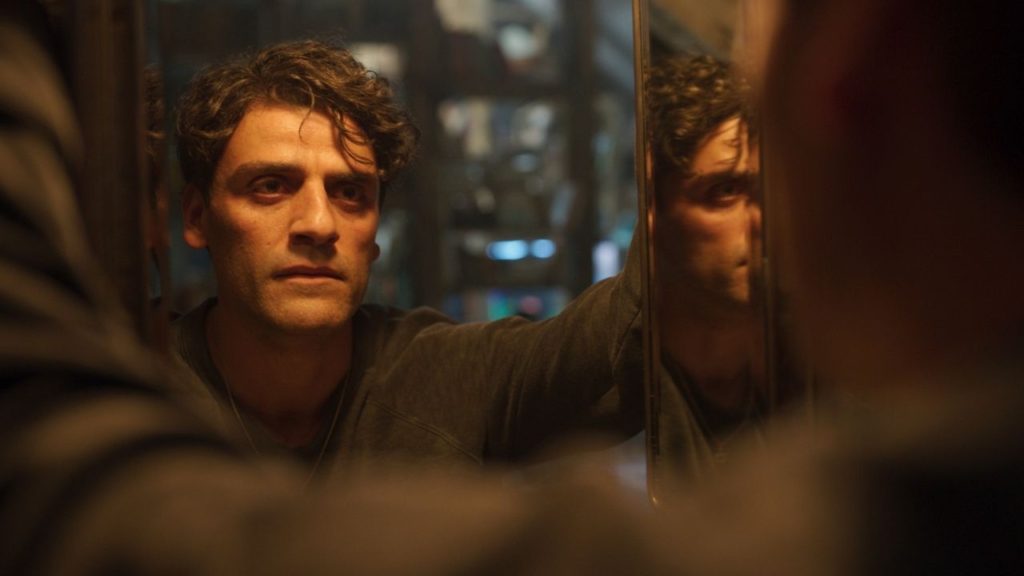
Which is why I want you to go into this blind. I want you to experience the mystery of Moon Knight right alongside Steven Grant. To feel strangely drawn to Ethan Hawke’s Arthur Harrow. And to crush uncontrollably on May Calamawy’s Layla El-Faouly. I want you to be haunted by F. Murray Abraham’s deep and powerful timbre. I want you to revel in the discovery of something new. Because it is a high that is becoming harder and harder to attain.
Moon Knight is a magnificent departure for the MCU. It deals with cults and Gods. It dips into the supernatural. It’s smart, and funny, and completely batshit crazy. It’s dark, and violent, and scary. It is Marvel Studios’ most grown up effort yet.

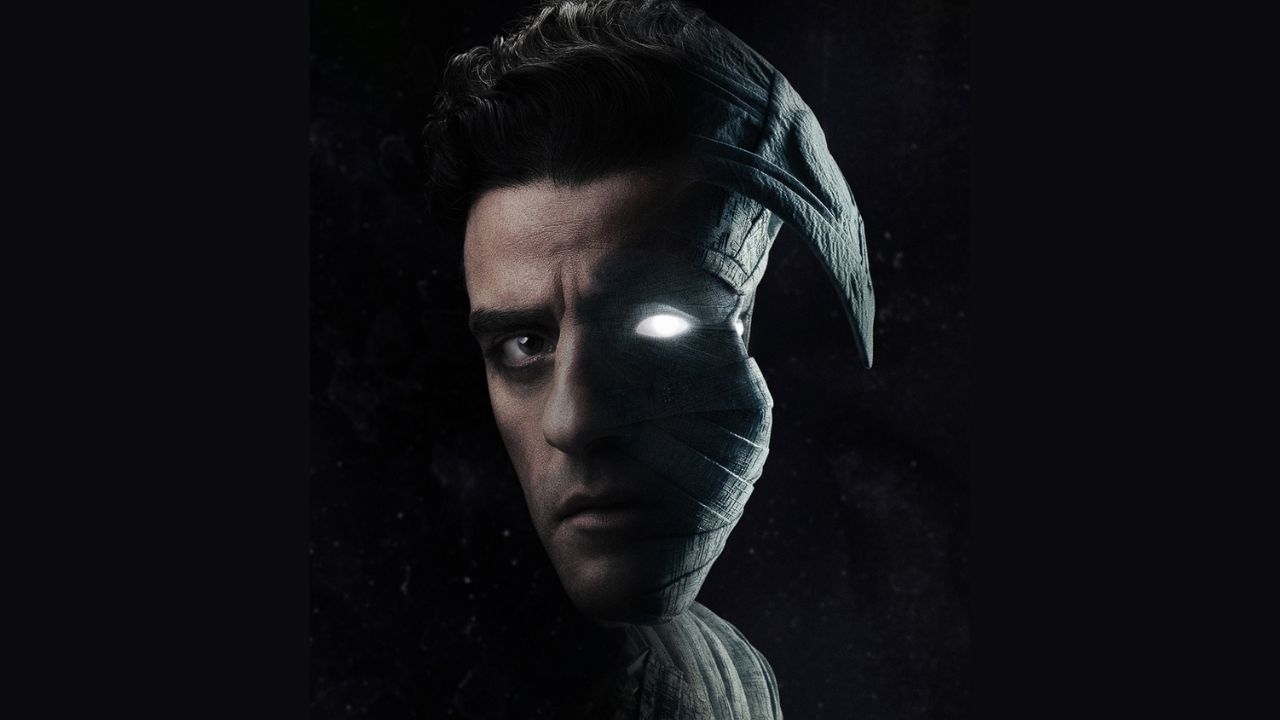
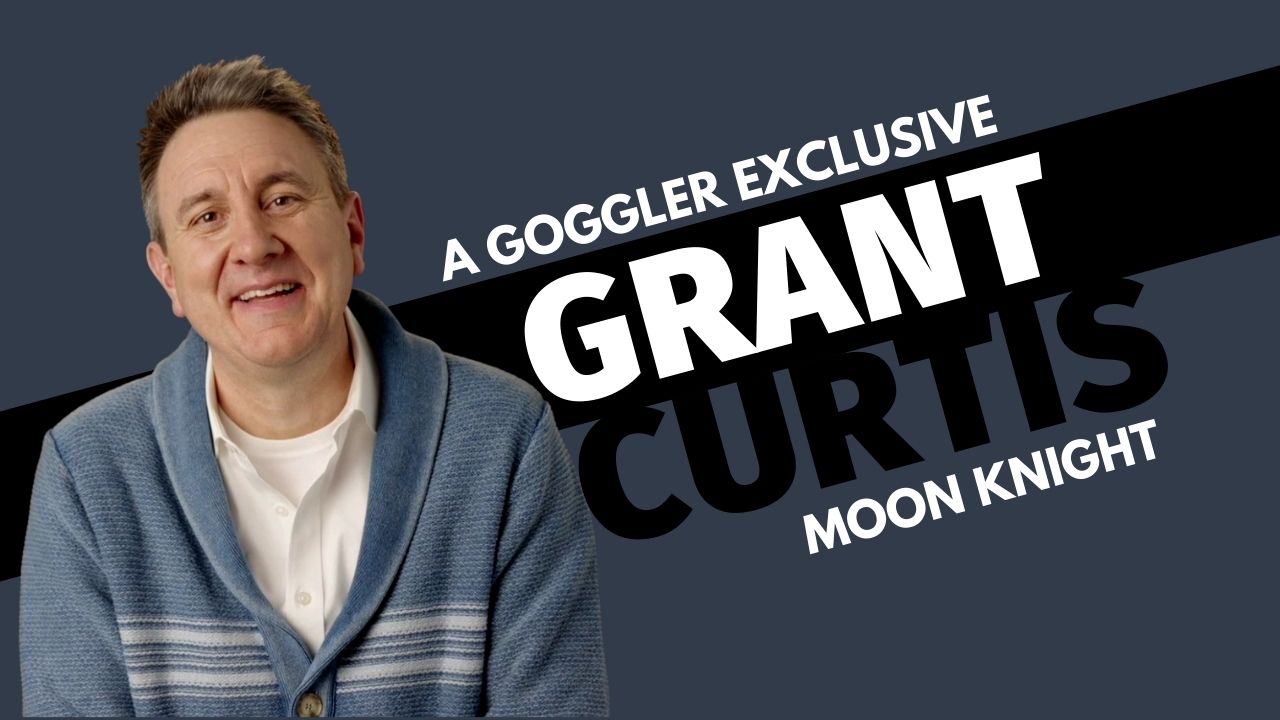
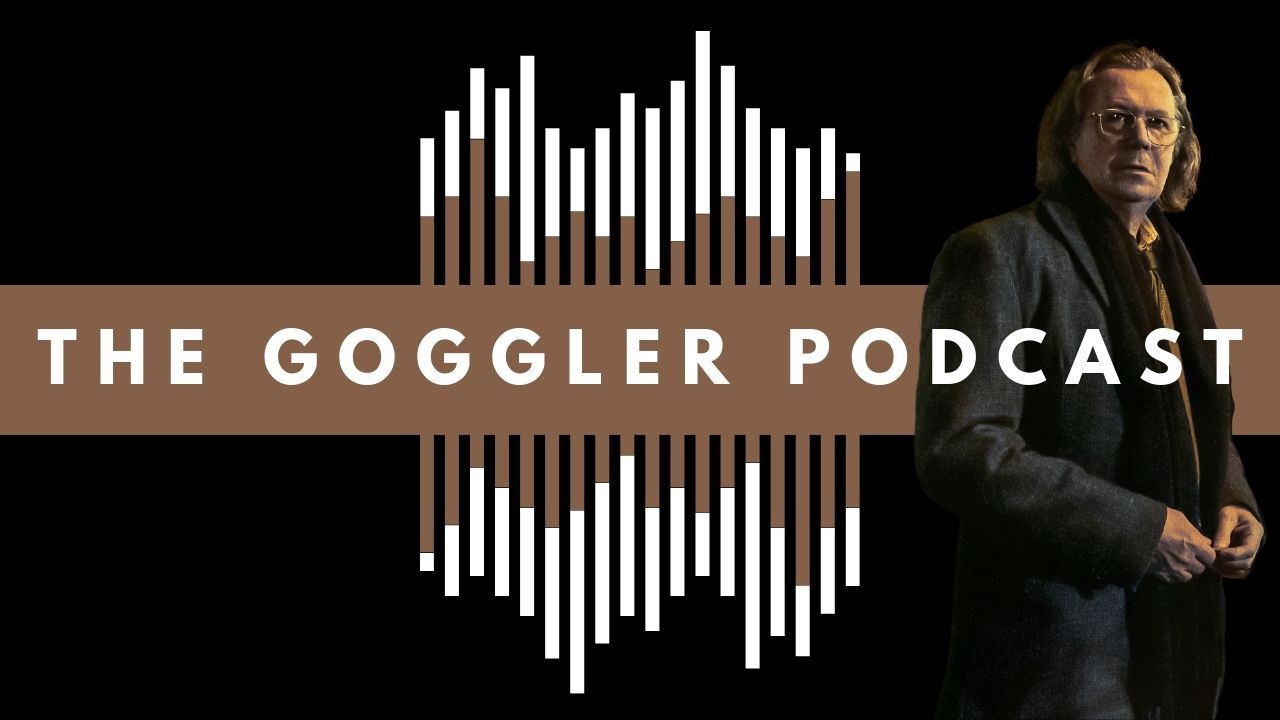
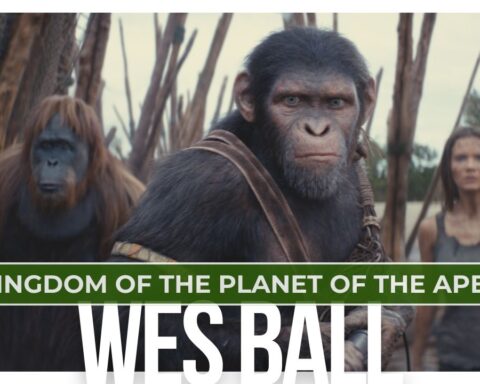
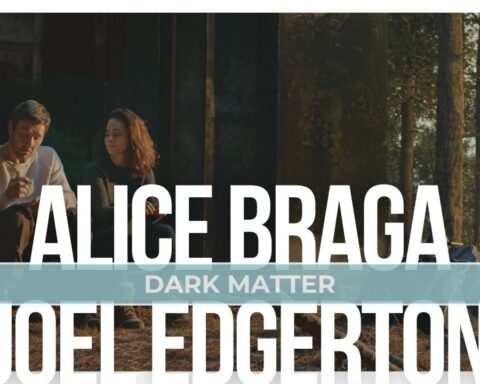



Follow Us